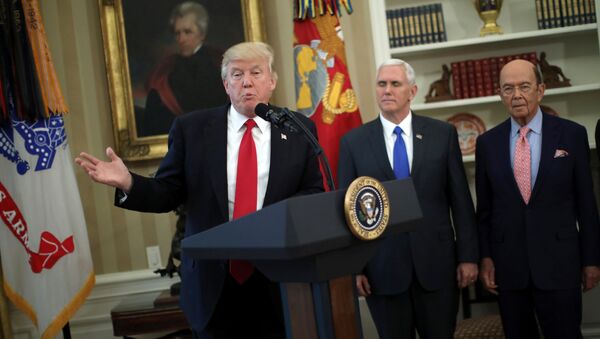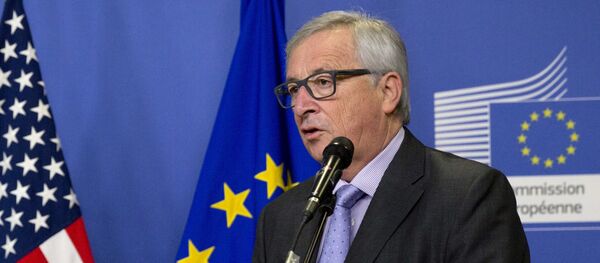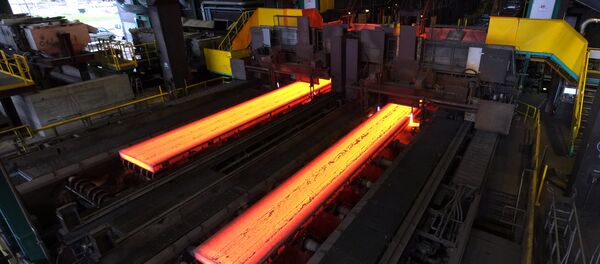On Friday, US President Donald Trump signed executive orders which direct the US Department of Commerce to review Washington's relationship with its trade partners.
One of the orders commissions a review of trade practices that contribute to the US trade deficit with 16 other countries. The other seeks to improve the collection of duties on foreign imports.
Simon Lester, a trade policy analyst with Herbert Stiefel Center for Trade Policy Studies at the Cato Institute told Radio Sputnik that the substance of the orders doesn't yet represent a major shift in policy.
"One is more of a technical nature, it relates to collection of duties, there's a concern or allegation that somehow we're not collecting all the duties that we should be and they want to toughen this up a bit," Lester said.
"I don't see that as a radical shift in policy, it's more of an enforcement exercise of existing law."
The trade deficit review is "potentially broader" but it may be an example of "tough rhetoric" rather than an actual change in policy, since the US "has always been evaluating whether foreign countries are engaging in foreign trade practices," Lester said.
"I don't know that this marks a major shift. The Trump administration is definitely trying to use it to illustrate their toughness about trade. In the end, I'm not sure that this will have a major impact on our actual policies."
"To some extent, it seems to me these executive orders are a way to grab headlines and look tough on trade. Whether that translates into actual new and different policies still remains to be seen," Lester said.
"First, I am signing an executive order to ensure that we fully collect all duties imposed on foreign importers that cheat," the President declared.
"Second, I am ordering the first ever comprehensive review of America's trade deficits and all violations of trade rules."
"We're going to investigate all trade abuses, and, based on those findings, we will take necessary and lawful action to end those many abuses," Trump said.
In the past, Trump has criticized the trade practices of China, Germany and Mexico. China, for example is "raping" and "killing" America and depriving Americans of jobs, Trump said.
Lester disputes claims about a decline in American manufacturing jobs. He also doubts Trump's ability to restore them.
"Manufacturing output is still as high as it has ever been. Manufacturing employment is slightly down but it's slightly down everywhere in all developed countries sort of (due to) the changing nature of our economy."
"It's hard to imagine the revival that some people envision. There was a time in the US where manufacturing played such a dominant role in the economy but I think that time has passed and I don't know that we necessarily want to bring it back. I think we exaggerate the importance of manufacturing to some extent."
"There are more extreme things they could do – they've suggesting putting a 40 percent tariff on imports from China. I can imagine that at the margins that would add a couple of new manufacturing jobs somewhere, but at a great cost to everyone else."
"So, I think it's a bit of a myth to think that somehow the Trump administration is going to come up with policies that lead to a revival or resurgence of manufacturing, I think that's largely out of their hands."
Have you heard the news? Sign up to our Telegram channel and we'll keep you up to speed!






